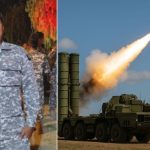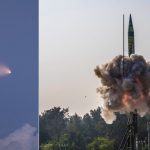Over three months after Operation Sindoor, the National Council for Education Research and Training (NCERT) has introduced new supplementary modules on the military operation for school children. Titled “Operation Sindoor—A Saga of Valour” for Classes 3–8 and “Operation Sindoor—A Mission of Honour and Bravery” for Classes 9–12, the modules aim to raise awareness about India’s strategic capabilities and the bravery of its armed forces.
The materials explain that although Pakistan denied involvement in the Pahalgam terror attack on April 22, 2025—which claimed 26 lives—it was carried out on “direct orders” from Pakistan’s military and political leadership. The operation’s name, Operation Sindoor, was chosen as a tribute to the widows of the victims, symbolising solidarity, respect, and empathy.
Highlighting Bravery and Technology
The modules detail how the Indian Army, Navy, and Air Force executed precise strikes on nine terrorist camps in Pakistan and Pakistan-occupied Kashmir, including Sawai Nala, Syedna Bilal Camp, Gulpur, Barnala, Abbas, Sarjal, Mehmoona Joya, Bahawalpur, and Muridke. The Army destroyed seven camps, while the Air Force targeted Muridke and Bahawalpur. The strikes were completed in just 22 minutes, showcasing operational efficiency.
Advanced air defence systems, including the S-400, intercepted enemy drones and aircraft, preventing damage to Indian installations. The modules describe the operation as a combination of military success, technological innovation, and a political message, calling it “a triumph of bravery, strategy, and innovation.”
National Unity and Civil Response
The NCERT material also highlights nationwide solidarity: candlelight marches were held, and communities across India condemned the attacks. Notably, Muslim communities in Hyderabad, Lucknow, and Bhopal wore black armbands in protest, while Kashmiri shopkeepers closed their businesses. Villages near the border voiced support for the Armed Forces, breaking stereotypes and emphasising the real voice of peace-loving citizens.
International Recognition
The modules note India’s diplomatic success post-Operation Sindoor. The United States officially designated the Resistance Front (TRF) as a foreign terrorist organisation on July 18, 2025, while the UN Security Council called for accountability for those planning and executing terrorist attacks.
Strategic and Cultural Significance
The name “Operation Sindoor” reflects the sacrifices of families who lost loved ones, drawing parallels with the cultural symbol of sindoor—marriage, love, and respect. The modules also underline India’s commitment to self-reliance, showcasing how Made-in-India defence systems enabled the operation, aligning with the Make in India initiative.
Educational Approach
These supplementary modules are interactive, presented as classroom discussions between teachers and students, and form part of NCERT’s ongoing effort to provide students with insights into key national themes. This follows 16 previous modules focused on India’s history, defence, and national achievements.
By bringing Operation Sindoor into classrooms, NCERT aims to instil a sense of pride, awareness of India’s defence capabilities, and the values of unity and resilience in students across the country.












